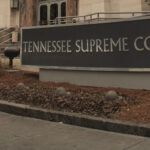Energy Company Ensnared by False Claims Act
The False Claims Act (FCA) is often thought of as a healthcare fraud enforcement statute. This is not surprising, as over 80 percent of FCA settlements involve the healthcare industry, which ponied up to the tune of $1.8 billion in FY 2020. But as we have seen time and again, no industry that does business with the federal government is outside the FCA’s reach. Earlier this week, the Department of Justice (DOJ) and the United States Attorney’s Office for the District of Colorado reminded us again that not every FCA case is a run-of-the-mill billing fraud.
On September 27, 2021, DOJ announced a $6.15 million FCA settlement with Devon Energy Company (Devon), an Oklahoma-based oil and natural gas exploration and production company. The investigation was not for overbilling for services rendered or even violating a most favored customer provision. Here, the government alleged that Devon “violated the [FCA] by underpaying and underreporting royalties for natural gas from federal lands in Wyoming and New Mexico.”
 Devon, like many energy companies, leases federal lands for natural gas production. In exchange, these companies agree to pay royalties to the federal government on the value of the gas they extract from federal land. The lessees must also put the gas in marketable condition at no cost to the United States. DOJ claims that Devon “improperly deducted payments [during its federal royalty calculations] to third parties for gas transportation and processing that included costs to place the gas in marketable condition, and thereby knowingly underreported and underpaid royalties to the Department of the Interior (DOI).”
Devon, like many energy companies, leases federal lands for natural gas production. In exchange, these companies agree to pay royalties to the federal government on the value of the gas they extract from federal land. The lessees must also put the gas in marketable condition at no cost to the United States. DOJ claims that Devon “improperly deducted payments [during its federal royalty calculations] to third parties for gas transportation and processing that included costs to place the gas in marketable condition, and thereby knowingly underreported and underpaid royalties to the Department of the Interior (DOI).”
One might dismiss these royalty arrangements as unique to the energy industry, but the settlement is another reminder of the FCA’s long reach into many different kinds of payment arrangements with the United States. Moreover, there are proposals to expand these kinds of royalty arrangements into – you guessed it – the healthcare industry. One recent paper from two academic commentators, for example, advocates for “a policy of royalties paid to the government on the sales of biomedical products developed with public funds.” The authors argue that the royalty system “would increase the incentives to create and to transfer to the private sector useful biomedical inventions from the research done in federal laboratories and in universities” while “address[ing] the concern that taxpayers pay prices perceived to be unreasonable for biomedical products developed with substantial taxpayer funding.”
One might dismiss these royalty arrangements as unique to the energy industry, but the settlement is another reminder of the long reach of the FCA into many different kinds of payment arrangements with the United States.
The bottom line is that anyone doing any business with the federal government should be wary of the FCA and consult with experienced counsel to ensure compliance before an agent knocks at the door.
We continue to monitor developments in the white collar fraud and FCA areas. Subscribe to the SRVH blog and follow us on Twitter and LinkedIn for future updates. Contact the lawyers in our Government Compliance & Investigations group with any questions or concerns.
Chris Sabis is a healthcare and procurement fraud lawyer specializing in Government Compliance and Investigations, Healthcare, and Litigation.
Photo By ded pixto from Shutterstock





